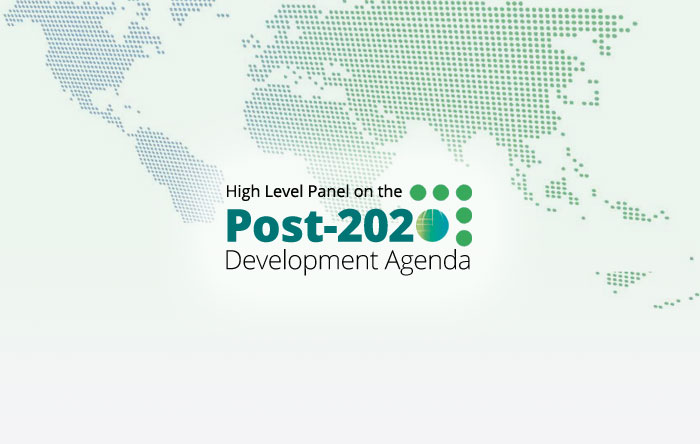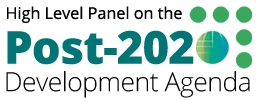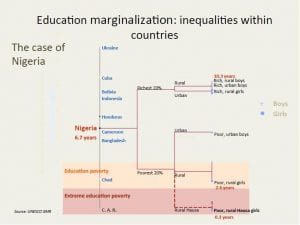Transformative shift leave no one behind

The next development agenda must ensure that in the future neither income nor gender, nor ethnicity, nor disability, nor geography, will determine whether people live or die, whether a mother can give birth safely, or whether her child has a fair chance in life. We must keep faith with the promise of the MDGs and now finish the job. The MDGs aspired to halve poverty. After 2015 we should aspire to put an end to hunger and extreme poverty as well as addressing poverty in all its other forms. This is a major new commitment to everyone on the planet who feels marginalised or excluded, and to the neediest and most vulnerable people, to make sure their concerns are addressed and that they can enjoy their human rights.
The new agenda must tackle the causes of poverty, exclusion and inequality. It must connect people in rural and urban areas to the modern economy through quality infrastructure – electricity, irrigation, roads, ports, and telecommunications. It must provide quality health care and education for all. It must establish and enforce clear rules, without discrimination, so that women can inherit and own property and run a business, communities can control local environmental resources, and farmers and urban slum-dwellers have secure property rights. It must give people the assurance of personal safety. It must make it easy for them to follow their dreams and start a business. It must give them a say in what their government does for them, and how it spends their tax money. It must end discrimination and promote equality between men and women, girls and boys.
These are issues of basic social justice. Many people living in poverty have not had a fair chance in life because they are victims of illness or poor healthcare, unemployment, a natural disaster, climate change, local conflict, instability, poor local leadership, or low-quality education – or have been given no schooling at all. Others face discrimination. Remedying these fundamental inequalities and injustices is a matter of respect for people’s universal human rights. A focus on the poorest and most marginalised, a disproportionate number of whom are women, follows directly from the principles agreed to in the Millennium Declaration and at Rio.17 These principles should remain the foundation of the post-2015 agenda.
To be sure that our actions are helping not just the largest number of people, but the neediest and most vulnerable, we will need new ways of measuring success. Strategies and plans will have to be developed to reach those not adequately covered by existing programmes. The cost of delivering services in remote areas may be only 15 to 20 per cent higher than average, to judge by practical experience in many countries. This seems reasonable and affordable, given higher tax revenues expected in most countries, and sustained aid to the lowest income countries. Above all it is the right thing to do.

